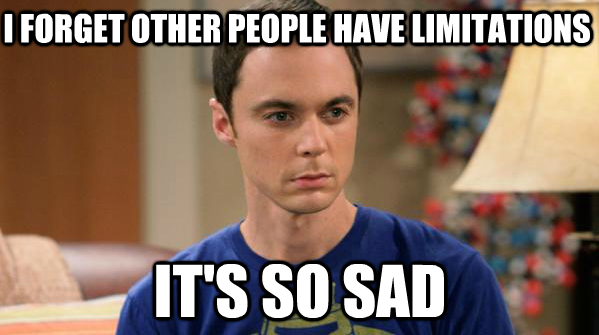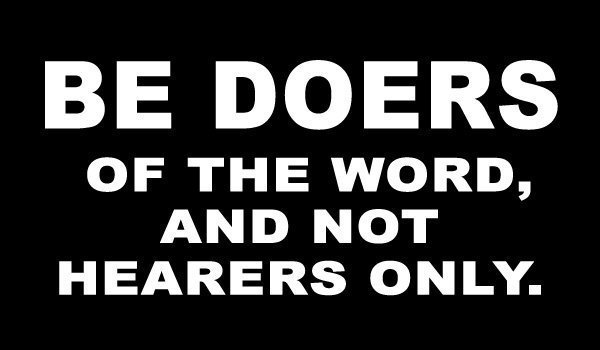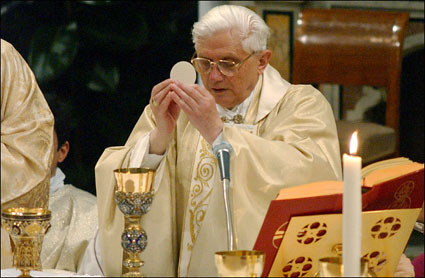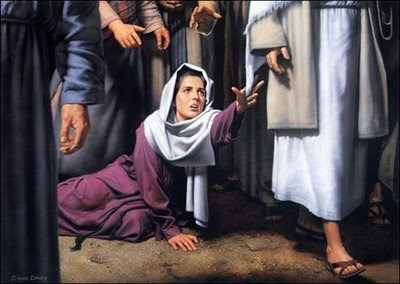Be Wiser

Be wiser than other people if you can; but do not tell them so
– Lord Chesterfield
"We are travellers…not yet in our native land" – St. Augustine

Be wiser than other people if you can; but do not tell them so
– Lord Chesterfield
There are a number of themes found in this week’s Readings, but they all centre around remaining in right relationship with God through observance of His Word.
In our First Reading, Moses reminds the people of their obligation to observe what God has commanded. If they do this, then they shall remain in covenant with Him and be light to the other nations. In the Second Reading, St. James exhorts his listeners to “Be doers of the word and not hearers only”. Finally, in the Gospel our Lord answers the criticisms of the Pharisees when they complain about his disciples not washing their hands. He responds with a stinging rebuttal, claiming that they “disregard God’s commandment but cling to human tradition”. He goes on to say to the crowd that “nothing that enters one from outside can defile”. It is what we say and what we do which makes us “unclean”.
This Sunday, as we hear the Word of God proclaimed, do we “humbly welcome” it and allow it to penetrate our lives? Do we act on what we hear or are we “hearers only”? As we renew our covenant with the Lord in the Eucharist, let us commit ourselves to be “doers of His word” and to live lives which reflect the holiness of the Lord.

Once again, in the spirit of regaining more of my free time to engage in other projects, these notes will be fairly terse and to the point…
The Readings this week continue on a similar trajectory to those of recent weeks. In Proverbs we hear how Lady Wisdom has “dressed her meat [and] mixed her wine” and sent out an invitation to all to come eat and drink at her table. In our Responsorial Psalm, the psalmist invites us once again to “Taste and see the goodness of the Lord”. St. Paul continues his moral exhortation to the Ephesians in the Second Reading , commending them to be “filled with the Spirit” rather than wine. Finally, in our Gospel extract, the Lord again affirms that He is “the living bread that came down from heaven” and He promises that “whoever eats this bread will live forever”.

For the last few weeks the Readings have all been about food and drink. Are you hungry yet? Are you spiritually salivating? Are you hungry for holiness? Do you long for the flesh of Christ?
I have no delight in corruptible food, nor in the pleasures of this life. I desire the Bread of God, the heavenly bread, the bread of life, which is the flesh of Jesus Christ, the Son of God, who was of the seed of David; and I desire the drink of God, namely His blood, which is incorruptible love and eternal life. – St. Ignatius to the Romans, Chapter 7
I originally had the following post scheduled for this weekend, but since yesterday Joe posted an article entitled Defending the Deuterocanon Book by Book (Part 1), I thought I’d post it a little earlier…
In case you were unaware, Catholic Bibles are bigger than Protestant Bibles. Protestant Bibles are lacking the following books:
Tobit, Judith, Wisdom, Sirach, Baruch, 1 Maccabees, 2 Maccabees, …
…as well as three chapters of Daniel (3:24-90; 13; 14) and six chapters of Esther (10:14-16:14)
Occasionally I run across a non-Catholic who insists that this Deuterocanonical books (referred to as the “apocrypha” by Protestants) should not be part of the Bible. I don’t usually get too much into the apologetic arguments in favour of the inclusion of the Deuterocanon, although they certainly do exist. Instead, I just invite the person simply to read them! I usually suggest that they start with Wisdom, Sirach and Tobit as they’re my favourites.
Before they do that though, I always invite them to start by the following extract from Wisdom, to which I’ve added a series of underlined New Testament hyperlinks. Does any of this sound strangely familiar?
…the ungodly by their words and deeds summoned death… they reasoned unsoundly, saying to themselves…
“Let us lie in wait for the righteous man, because he is inconvenient to us and opposes our actions; he reproaches us for sins against the law, and accuses us of sins against our training. He professes to have knowledge of God, and calls himself a child of the Lord. He became to us a reproof of our thoughts; the very sight of him is a burden to us, because his manner of life is unlike that of others, and his ways are strange. We are considered by him as something base, and he avoids our ways as unclean; he calls the last end of the righteous happy, and boasts that God is his father.
Let us see if his words are true, and let us test what will happen at the end of his life; for if the righteous man is God’s son, he will help him, and will deliver him from the hand of his adversaries. Let us test him with insult and torture, that we may find out how gentle he is, and make trial of his forbearance. Let us condemn him to a shameful death, for, according to what he says, he will be protected.” Thus they reasoned, but they were led astray, for their wickedness blinded them, and they did not know the secret purposes of God, nor hope for the wages of holiness, nor discern the prize for blameless souls…”
Wisdom 1:16, 2:1, 12–22

There are a number of common themes found among the Reading for Mass this week. Death is the subject our First Reading from the Book of Wisdom and it is found again in our Gospel. The theme of Faith in God’s saving power is also present. In our psalm we sing “I will praise you, Lord, for you have rescued me” and in our Gospel Reading we hear of two such individuals who reached out to Jesus in faith and were blessed.

As we come to the Eucharist this week, let us fall at the feet of Jesus, reach out with expectant faith, praying for the Lord to restore us to the fullness of life.
In times of spiritual cooling and laziness, imagine in your heart those past times when you were full of zeal…remember your past efforts and the energy with which you opposed those who wished to obstruct your progress. These recollections will reawaken your soul from its deep sleep, will invest it anew with the fire of zeal, will raise it, as it were, from the dead and will make it engage in an ardent struggle against the devil and sin, thus returning to its former rank. -St. Isaak of Syria
The readings this week continue with the theme of the Second Coming, particularly focusing upon how we should “spend” our time waiting for the Lord to return…
In the First Reading we hear praise of the “worthy wife”. She is holy, conscientious and industrious. In the Second Reading, St. Paul explains to the Thessalonians what we learnt in last week’s Gospel, that the Lord will come when we least expect, but also that He should find us ready. In the Gospel Reading this readiness is spelt out in concrete terms – we should be using our God-given gifts in the service of the Master. He will someday return and we shall be called to account concerning our stewardship of His gifts…

The Readings this week focus around the concepts of wisdom and watchfulness.
In the First Reading we hear “Lady Wisdom” extolled and praised. In the Second Reading St. Paul talks about the Second Coming of Christ. Finally, in the Gospel Reading Jesus combines both of these subjects and tells a parable in which he compares two different types of people: the wise who prepare for His coming and the foolish who do not. The lesson is clear: Be wise – Be Ready

“Watch with the heart, watch with faith, watch with love, watch with charity, watch with good works…make ready the lamps, make sure they do not go out…renew them with the inner oil of an upright conscience; then shall the Bridegroom enfold you in the embrace of his love and bring you into his banquet room, where your lamp can never be extinguished” –St. Augustine